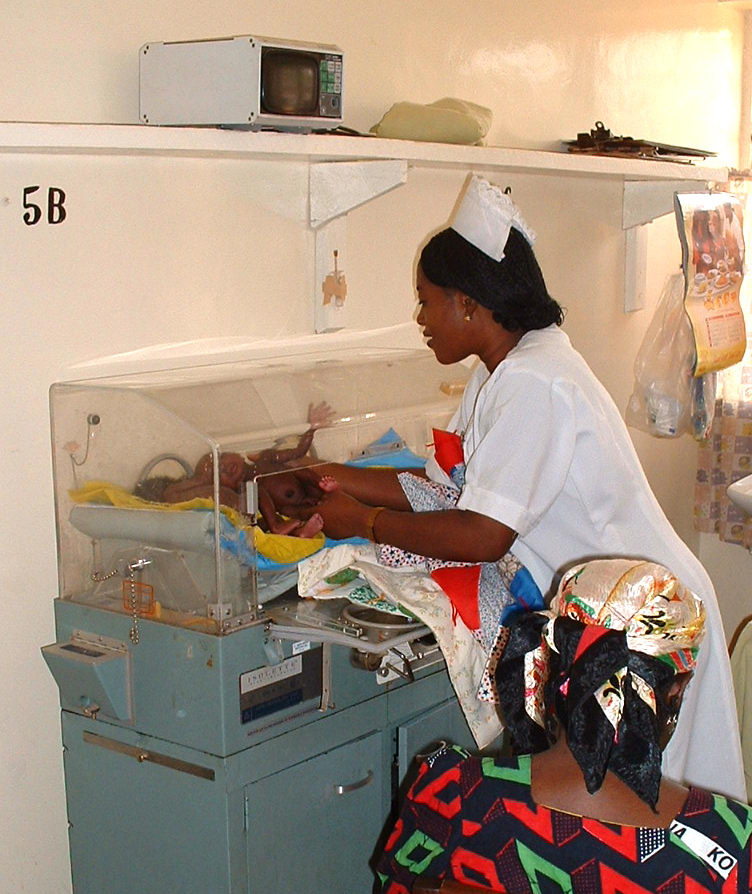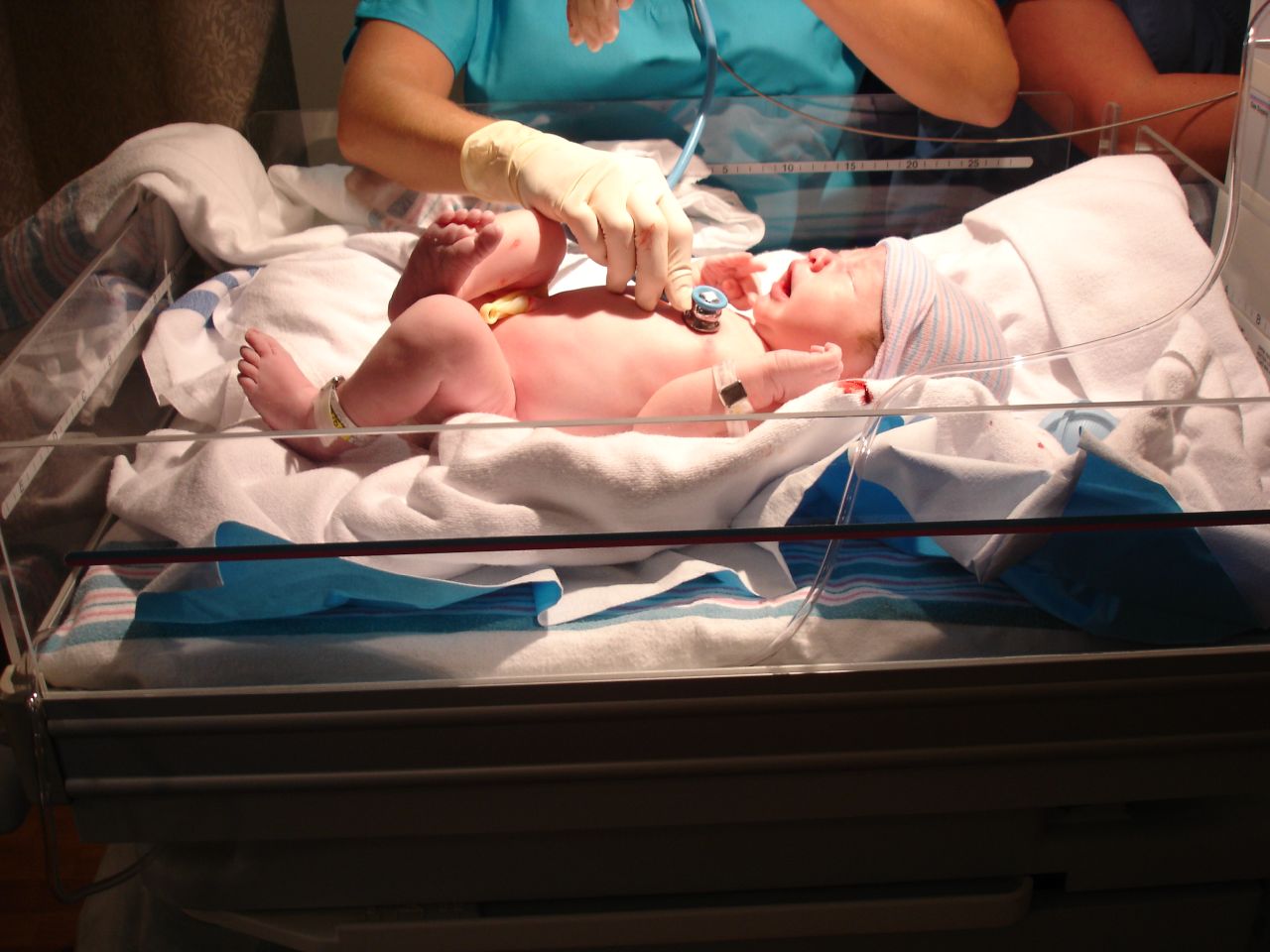|
Pediatrician
Pediatrics (American English) also spelled paediatrics (British English), is the branch of medicine that involves the medical care of infants, children, adolescents, and young adults. In the United Kingdom, pediatrics covers many of their youth until the age of 18. The American Academy of Pediatrics recommends people seek pediatric care through the age of 21, but some pediatric subspecialists continue to care for adults up to 25. Worldwide age limits of pediatrics have been trending upward year after year. A medical doctor who specializes in this area is known as a pediatrician, or paediatrician. The word ''pediatrics'' and its cognates mean "healer of children", derived from the two Greek words: (''pais'' "child") and (''iatros'' "doctor, healer"). Pediatricians work in clinics, research centers, universities, general hospitals and children's hospitals, including those who practice pediatric subspecialties (e.g. neonatology requires resources available in a NICU). History ... [...More Info...] [...Related Items...] OR: [Wikipedia] [Google] [Baidu] |
American Academy Of Pediatrics
The American Academy of Pediatrics (AAP) is the largest professional association of pediatricians in the United States. It is headquartered in Itasca, Illinois, and maintains an office in Washington, D.C. The AAP has published hundreds of policy statements, ranging from advocacy issues to Practice of medicine, practice recommendations. Background The Academy was founded in 1930 by 35 pediatricians to address pediatric healthcare standards. , it has 67,000 members in primary care and sub-specialist areas. Qualified pediatricians can become fellows (FAAP). The Academy runs continuing medical education (CME) programs for pediatricians and Subspecialty, sub-specialists. The Academy is divided into 14 departments and 26 divisions. Publications It has the largest pediatric publishing program in the world, with more than 300 titles for consumers and over 500 titles for physicians and other healthcare professionals. These publications include electronic products, professional referenc ... [...More Info...] [...Related Items...] OR: [Wikipedia] [Google] [Baidu] |
Newborn Examination 1967
In common terminology, a baby is the very young offspring of adult human beings, while infant (from the Latin word ''infans'', meaning 'baby' or 'child') is a formal or specialised synonym. The terms may also be used to refer to Juvenile (organism), juveniles of other organisms. A newborn is, in colloquial use, a baby who is only hours, days, or weeks old; while in medical contexts, a newborn or neonate (from Latin, ''neonatus'', newborn) is an infant in the first 28 days after Human birth, birth (the term applies to Preterm birth, premature, Pregnancy#Term, full term, and Postterm pregnancy, postmature infants). Infants born prior to 37 weeks of gestation are called "premature", those born between 39 and 40 weeks are "full term", those born through 41 weeks are "late term", and anything beyond 42 weeks is considered "post term". Before birth, the offspring is called a fetus. The term ''infant'' is typically applied to very young children under one year of age; however, defini ... [...More Info...] [...Related Items...] OR: [Wikipedia] [Google] [Baidu] |
United Kingdom
The United Kingdom of Great Britain and Northern Ireland, commonly known as the United Kingdom (UK) or Britain, is a country in Northwestern Europe, off the coast of European mainland, the continental mainland. It comprises England, Scotland, Wales and Northern Ireland. The UK includes the island of Great Britain, the north-eastern part of the island of Ireland, and most of List of islands of the United Kingdom, the smaller islands within the British Isles, covering . Northern Ireland shares Republic of Ireland–United Kingdom border, a land border with the Republic of Ireland; otherwise, the UK is surrounded by the Atlantic Ocean, the North Sea, the English Channel, the Celtic Sea and the Irish Sea. It maintains sovereignty over the British Overseas Territories, which are located across various oceans and seas globally. The UK had an estimated population of over 68.2 million people in 2023. The capital and largest city of both England and the UK is London. The cities o ... [...More Info...] [...Related Items...] OR: [Wikipedia] [Google] [Baidu] |
Celsus
Celsus (; , ''Kélsos''; ) was a 2nd-century Greek philosopher and opponent of early Christianity. His literary work '' The True Word'' (also ''Account'', ''Doctrine'' or ''Discourse''; Greek: )Hoffmann p.29 survives exclusively via quotations in '' Contra Celsum'', a refutation written in 248 by Origen of Alexandria. ''The True Word'' is the earliest known comprehensive criticism of Christianity and Judaism. Hanegraaff has argued that ''The True Word'' was written shortly after the death of Justin Martyr (who was possibly the first Christian apologist), and was probably a response to his work.Hanegraaff p.22 Origen stated that Celsus was from the first half of the 2nd century AD, although the majority of modern scholars have come to a general consensus that Celsus probably wrote around AD 170 to 180.Chadwick, H., ''Origen: Contra Celsum'', CUP (1965), p. xxviii. The arguments for the date depend on factors such as the state of the art of gnosticism, possible references ... [...More Info...] [...Related Items...] OR: [Wikipedia] [Google] [Baidu] |
Hippocratic Corpus
The Hippocratic Corpus (Latin: ''Corpus Hippocraticum''), or Hippocratic Collection, is a collection of around 60 early Ancient Greek medical works strongly associated with the physician Hippocrates and his teachings. The Hippocratic Corpus covers many diverse aspects of medicine, from Hippocrates' medical theories to what he devised to be ethical means of medical practice, to addressing various illnesses. Even though it is considered a singular corpus that represents Hippocratic medicine, they vary (sometimes significantly) in content, age, style, methods, and views practiced; therefore, authorship is largely unknown. The ancient commentaries on this corpus, from writers such as Attalion and Oribasius, are myriad. Hippocrates began Western society's development of medicine, through a delicate blending of the art of healing and scientific observations. What Hippocrates was sharing from within his collection of works was not only how to identify symptoms of disease and proper di ... [...More Info...] [...Related Items...] OR: [Wikipedia] [Google] [Baidu] |
Great Ormond Street Hospital
Great Ormond Street Hospital (informally GOSH, formerly the Hospital for Sick Children) is a children's hospital located in the Bloomsbury area of the London Borough of Camden, and a part of Great Ormond Street Hospital for Children NHS Foundation Trust. The hospital is the largest centre for child heart surgery in Britain and one of the largest centres for heart transplantation in the world. In 1962 it developed the first heart and lung bypass machine for children. With children's book author Roald Dahl, it developed an improved shunt valve for children with hydrocephalus, and non-invasive (percutaneous) heart valve replacements. Great Ormond Street performed the first UK clinical trials of the rubella vaccine, and the first bone marrow transplant and gene therapy for severe combined immunodeficiency.Breakthroughs The hospital is the largest centre for research and postgraduate teaching in children's health in Europe. In 1929, J. M. Barrie donated the copyright ... [...More Info...] [...Related Items...] OR: [Wikipedia] [Google] [Baidu] |
Neonatal Intensive Care Unit
A neonatal intensive care unit (NICU), also known as an intensive care nursery (ICN), is an intensive care unit (ICU) specializing in the care of ill or premature newborn infants. The NICU is divided into several areas, including a critical care area for babies who require close monitoring and intervention, an intermediate care area for infants who are stable but still require specialized care, and a step down unit where babies who are ready to leave the hospital can receive additional care before being discharged. Neonatal refers to the first 28 days of life. Neonatal care, as known as specialized nurseries or intensive care, has been around since the 1960s. The first American newborn intensive care unit, designed by Louis Gluck, was opened in October 1960 at Yale New Haven Hospital. An NICU is typically directed by one or more neonatologists and staffed by resident physicians, nurses, nurse practitioners, pharmacists, physician assistants, respiratory therapists, and ... [...More Info...] [...Related Items...] OR: [Wikipedia] [Google] [Baidu] |
Neonatology
Neonatology is a subspecialty of pediatrics that consists of the medical care of newborn infants, especially the ill or premature newborn. It is a hospital-based specialty and is usually practised in neonatal intensive care units (NICUs). The principal patients of neonatologists are newborn infants who are ill or require special medical care due to prematurity, low birth weight, intrauterine growth restriction, congenital malformations ( birth defects), sepsis, pulmonary hypoplasia, or birth asphyxia. Historical developments Though high infant mortality rates were recognized by the medical community at least as early as the 1860s, advances in modern neonatal intensive care have led to a significant decline in infant mortality in the modern era. This has been achieved through a combination of technological advances, enhanced understanding of newborn physiology, improved sanitation practices, and development of specialized units for neonatal intensive care. Around the mid ... [...More Info...] [...Related Items...] OR: [Wikipedia] [Google] [Baidu] |
Children's Hospital
A children's hospital (CH) is a hospital that offers its services exclusively to infants, children, adolescents, and young adults from birth up to until age 18, and through age 21 and older in the United States. In certain special cases, they may also treat adults. The number of children's hospitals proliferated in the 20th century, as pediatric medical and surgical specialties separated from internal medicine and adult surgical specialties. Integration Children's hospitals are characterized by greater attention to the psychosocial support of children and their families. Some children and young people have to spend relatively long periods in hospital, so having access to play and teaching staff can also be an important part of their care. With local partnerships, this can include trips to local botanical gardens, zoos, and public libraries for instance. Designs for the new Cambridge Children's Hospital, approved in 2022, plan to fully integrate mental and physical health p ... [...More Info...] [...Related Items...] OR: [Wikipedia] [Google] [Baidu] |
Hospital
A hospital is a healthcare institution providing patient treatment with specialized Medical Science, health science and auxiliary healthcare staff and medical equipment. The best-known type of hospital is the general hospital, which typically has an emergency department to treat urgent health problems ranging from fire and accident victims to a sudden illness. A district hospital typically is the major health care facility in its region, with many beds for intensive care and additional beds for patients who need long-term care. Specialized hospitals include trauma centers, rehabilitation hospitals, children's hospitals, geriatric hospitals, and hospitals for specific medical needs, such as psychiatric hospitals for psychiatry, psychiatric treatment and other disease-specific categories. Specialized hospitals can help reduce health care costs compared to general hospitals. Hospitals are classified as general, specialty, or government depending on the sources of income received. ... [...More Info...] [...Related Items...] OR: [Wikipedia] [Google] [Baidu] |








